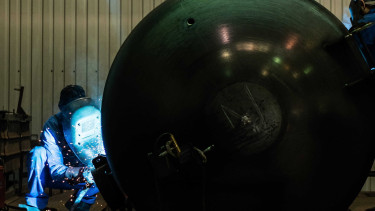COVID-19: European Commission gears up for potential second outbreak

The Commission has from the outset coordinated the exchange of information and recommendations with regard to cross border health actions and measures. A continued vigilance and fast response from the Commission and the Member States is essential to ensure that the spread of the virus can be contained and new, generalised lockdowns can be avoided.
The Communication focuses on all necessary actions needed to enhance preparedness, including testing and contact tracing, improved public health surveillance and widened access to medical countermeasures such as personal protective equipment, medicines and medical devices. Actions also include measures on healthcare surge capacity, non-pharmaceutical countermeasures, support to minorities and vulnerable persons, and activities to reduce the burden of seasonal influenza.
The communication lays out a number of priority actions for national authorities, the Commission and EU Agencies:
- Increased testing coverage, contact tracing and surveillance by public health bodies to map clusters in order to contain the spread of outbreaks. In addition to the Communication, the Commission adopted today an Implementing Decision to support interoperability of mobile tracing and warning apps across national borders in the EU.
- Ensuring the smooth supply of personal protective equipment, medicines and medical devices through mechanisms such as emergency joint procurements and strategic EU stockpiles.
- Maintaining rapid access to public health surge capacities without neglecting other areas of healthcare, including through financial support for the transport of medical personnel and patients between Member States and the coordination of the deployment of emergency medical teams and equipment to requesting countries through the EU Civil Protection Mechanism.
- Provision of targeted and localised non-pharmaceutical measures, informed by research and evidence as well as timely information exchange on the effectiveness of re-introduced measures.
- Supporting vulnerable groups such as the elderly, those with underlying medical conditions and those on the margins of society through sharing best practices of testing, care, and treatment, including in mental health and psychosocial support.
- Reducing the burden of seasonal flu to avoid additional pressure on the already-stretched health care systems, through increased vaccination coverage and other means such as ensuring additional national procurements for influenza vaccines.
Stella Kyriakides, Commissioner for Health and Food Safety, said: “We have come a long way from the height of the COVID-19 pandemic but the virus is still circulating. Vigilance, preparedness and coordination are indispensable to prevent generalised outbreaks. Today we call for strong and joint action to protect our citizens and will support Member States in doing so. It is our responsibility to ensure that we are fully prepared. Now is not the time to let our guard down.”
Cover photo by: Alberto Pezzali/NurPhoto via Getty Images











